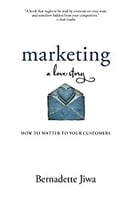Should We "Brand" Ourselves Professionally?
I’ve been thinking a lot about brand marketing, brands, and the concept of personal (or professional) brands.
In the past, I’ve ignored branding and brand marketing because I didn’t think I was creative enough to be involved with it. Now I’m starting to realize that branding isn’t about being witty and creative in that way.
It’s about crafting a story in a way to shape people’s perception of your products or services. It’s like a guiding hand in helping them form their own stories about your brand.
It’s why storytelling is such a valuable skill to have and to practice.
A lot of what I think and write about has to do with the way people view their careers. I try to look at how we view our careers through the lens of marketing.
Not the advertising aspect of marketing, but the core principles, the most essential being that of affecting change.
Most of us want our careers to evolve continuously. To - wait for it - change over time.
However, I’m torn on the concept of building a personal brand.
Is “personal brand” just a fancy way of talking about someone’s reputation?
According to Douglas B. Holt, the author of How Brands Become Icons, “...several different stories circulate widely in society. A brand emerges when these collective understandings become firmly established.” To me, this sounds an awful lot like a reputation.
When you hear the phrase “firmly established,” it points to the difficulty one could have at changing the perception (or brand) other professionals create for you, and this can be particularly challenging within an organization and industry with which you work.
People talk with one another, and it’s entirely possible that how they communicate their perceptions of you to others can make your path more accessible or more difficult.
Which then leads me to wonder, how easy is it to change your reputation? Would you essentially need to disconnect from everyone you’ve ever worked with or known and permanently go into a witness protection-like program to start fresh?
In a study done by researchers on the effects of positive bits of information shared by candidates during job interviews versus negative bits of information, it was discovered that it was significantly more challenging to overcome the effects of the negative information. According to, Bad is Stronger Than Good, by Baumeister, Bratslavsky, et al.
“...if the initial judgment favored hiring (i.e., acceptance), only 3.8 unfavorable bits of information were required to shift the decision to rejection; whereas 8.8 favorable pieces of information were necessary to shift an initially negative decision toward acceptance.” **
If we are talking about our reputation when we talk about personal branding, how do we figure out where we stand among our peers and colleagues?
Do we take an approach similar to companies in measuring this by asking what people’s perceptions of us are and asking what the stories other people are telling about us are?
Once we find out, how do we go about changing the narrative? How do we change the story to something more accurate, if you know it to be false?
-1.png?width=500&height=125&name=Website%20Logo%20-%20400x100%20(transparent%20background)-1.png)


